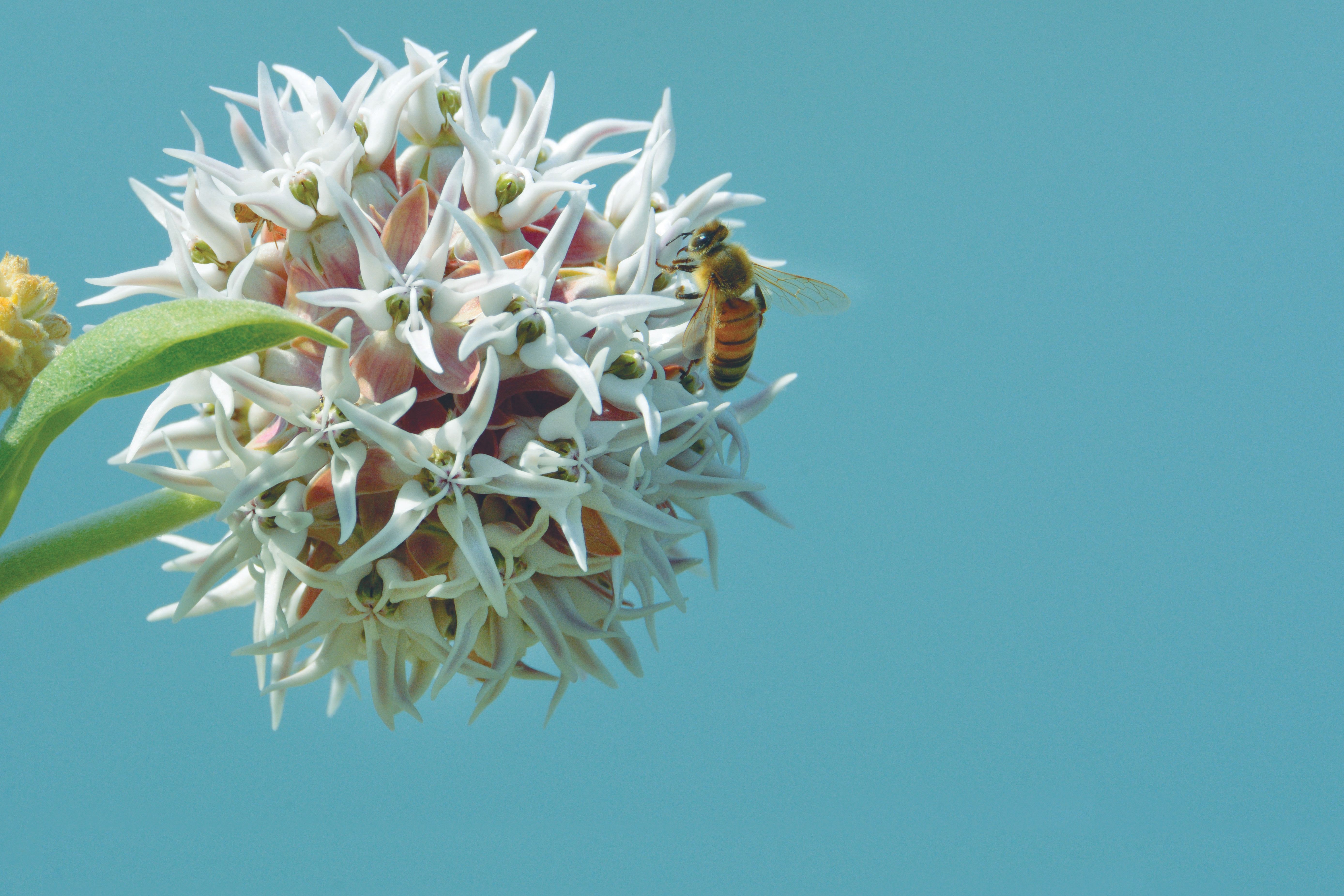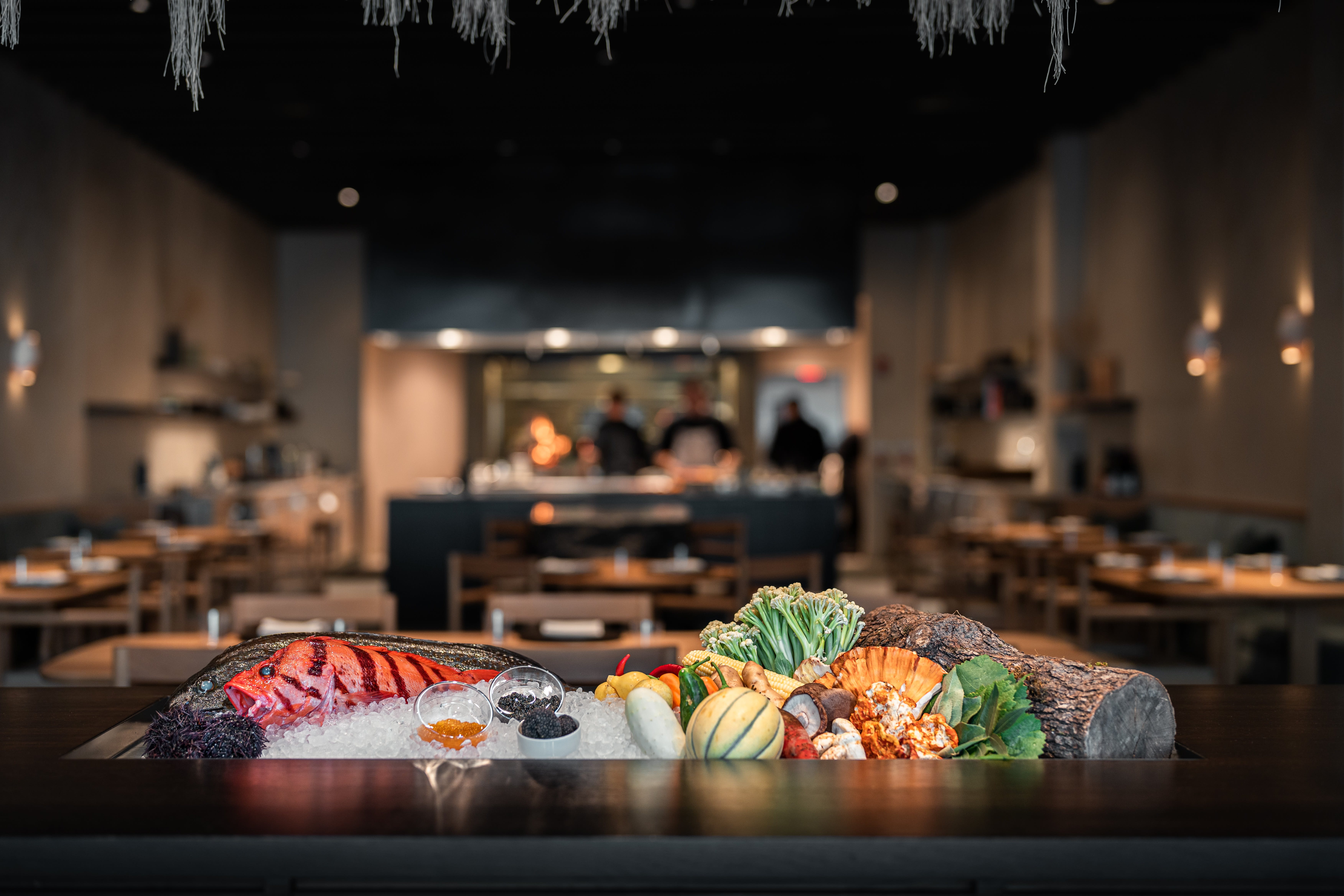Okta Is Now Oregon Wine Country’s Greatest Restaurant, Ever
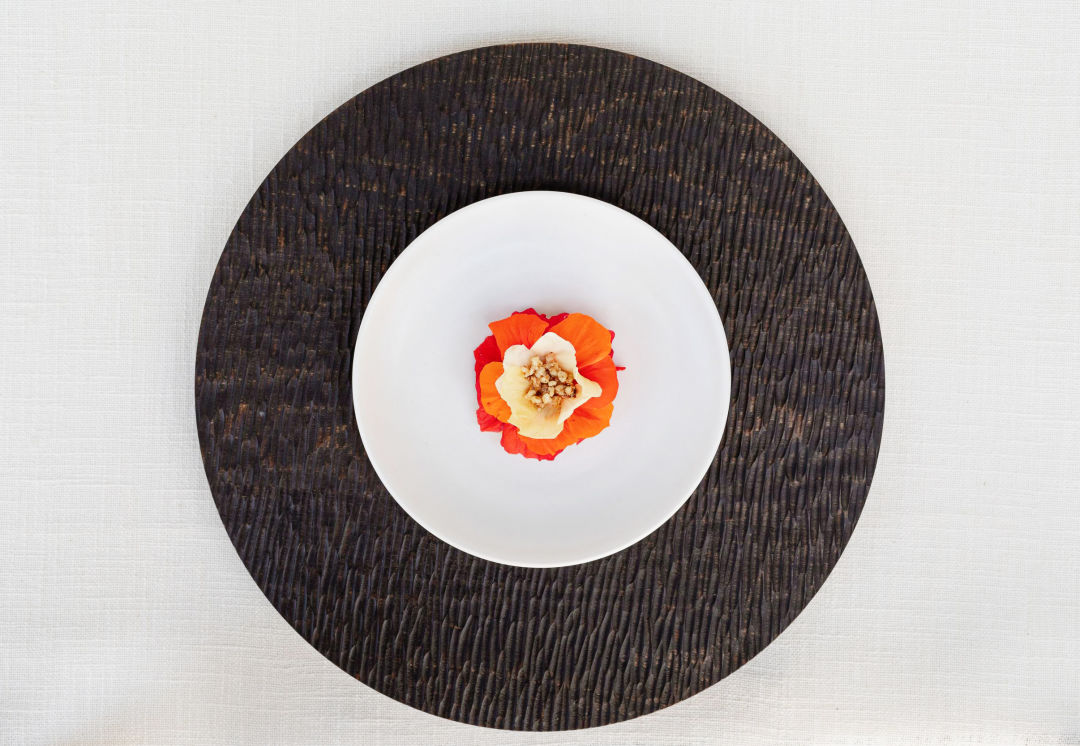
A whole life hides inside of the “Pollinator.”
Image: Courtesy Susan Seubert
What’s it like to be a bee? To nose-dive into a blossom to find the nectar of life? The answer arrived for me recently in a dish called “Pollinator,” midway through a tasting menu at Okta.
A beautiful flower arrives on a white plate. It doesn’t look like food. It’s constructed from nasturtium petals in concentric circles, each a different shade of a hot sunset. Do I dare pick it up? I think I want to eat it, but how? Am I being punked by nature cuisine?
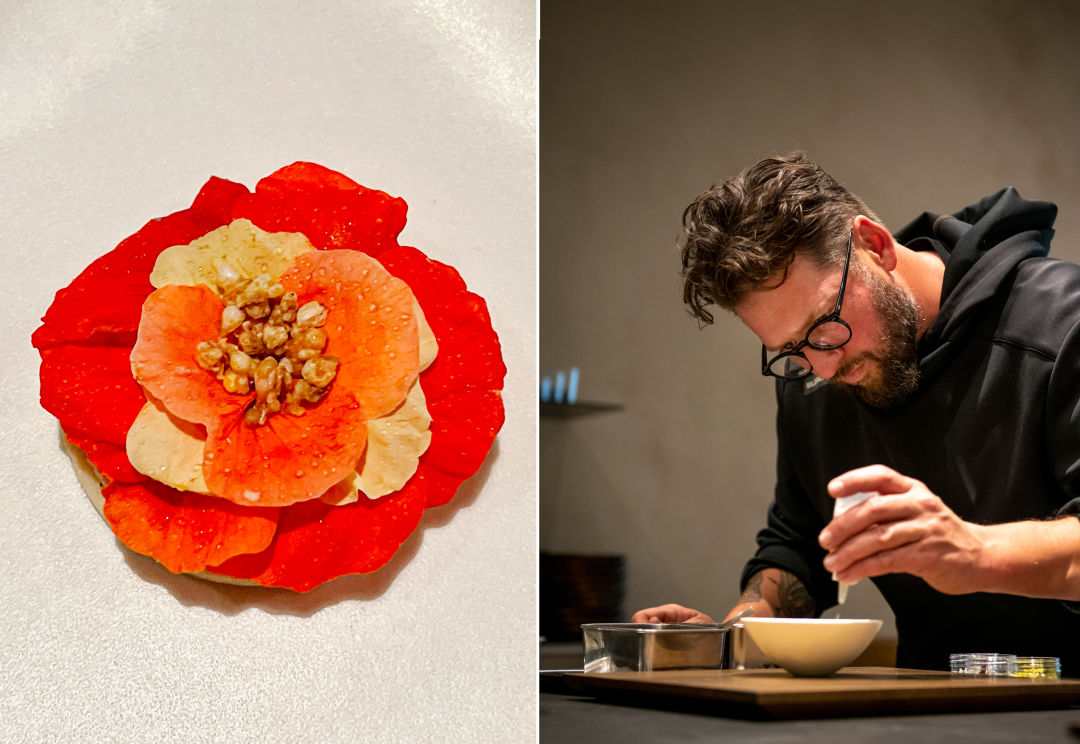
Candied buckwheat cereal mimics flower pistils (left); Okta chef Matthew Lightner
Image: Courtesy Robert Aughenbaugh and Courtesy Okta
Just grab it. A whole life hides inside. Where the bees find pollen, we find an ubersavory tangle of foie gras and honeyed crispy buckwheat, the candied cereal mimicking flower pistils. Below, smoky almond shortbread holds it together. Dear god … it’s a cookie. Imagine Georgia O’Keeffe and Henry David Thoreau collaborating with Nabisco at 2 a.m. after a shot. That’s the Pollinator.
Chef Matthew Lightner delivers the dish with a story: “When UV rays get intense, plants produce a nectar that attracts pollinators. Biologically, we don’t understand it, but they’re talking to each other, just like we’re talking now. We wanted a dish that spoke to that.” Mission accomplished.
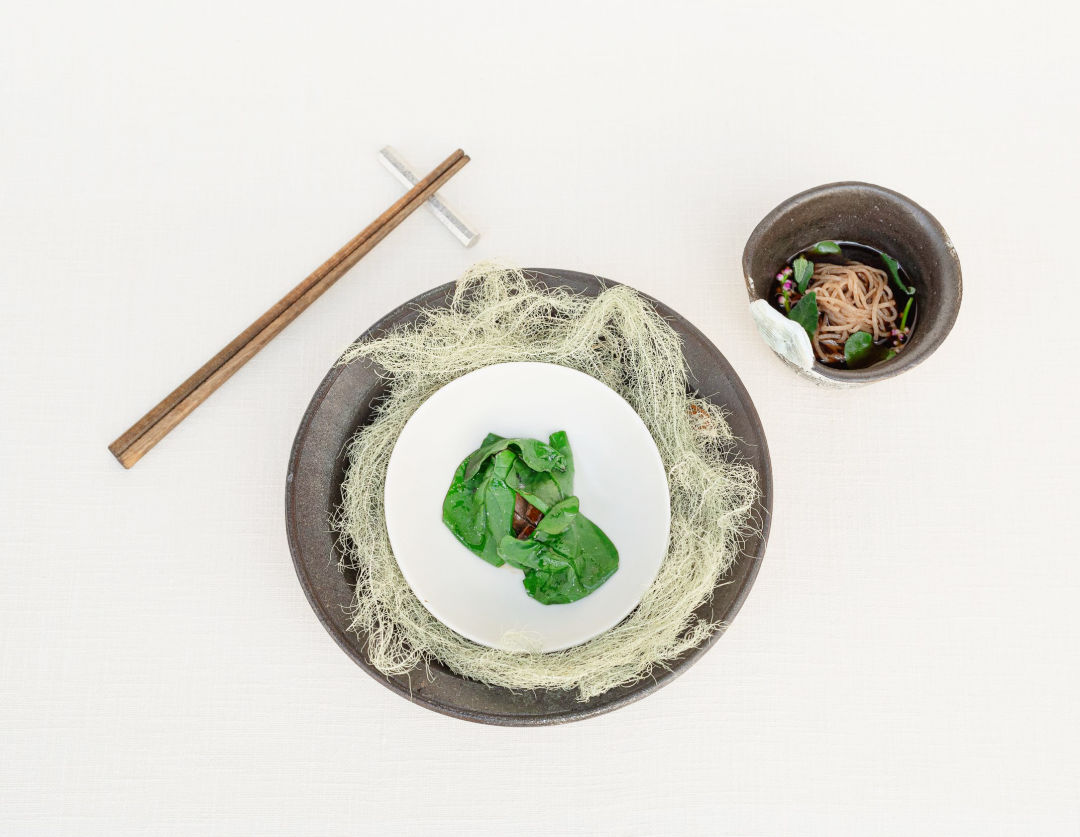
The farm’s spinach cradles the surprise of lichen-truffle fudge, BBQ porcini, and duck.
Image: Courtesy Susan Seubert
Welcome to the next chapter of Okta, one year into its narrative as a restaurant unlike any other in region. Okta’s regenerative farm and fermentation lab are blossoming. So is its mission to capture the soul and biology of the Willamette Valley on plates, via dishes not yet in existence. The location: main-street McMinnville, the small-town heart and unofficial capital of Oregon’s wine country.
McMinnville has long been on the precipice of becoming the next Napa. But, in truth, the food has been a generation behind the wine. Change is coming, as young coffee roasters and indie bakers are emerging. And now it has Okta, a region-defining destination, a north star and culinary space station in sync with the valley's fiercely independent wine culture.
Projects of this scope don’t crystallize overnight, as noted in my first review last September. What was Okta missing early on? Storytelling, a clearer sense of purpose. We wanted to be let in.
That door is now open. Lightner’s ideas have crystallized. He’s the real deal, a two-Michelin-star artist whose concepts about nature and food hit like a stun gun. Some of his tales are literal; others are really abstract.
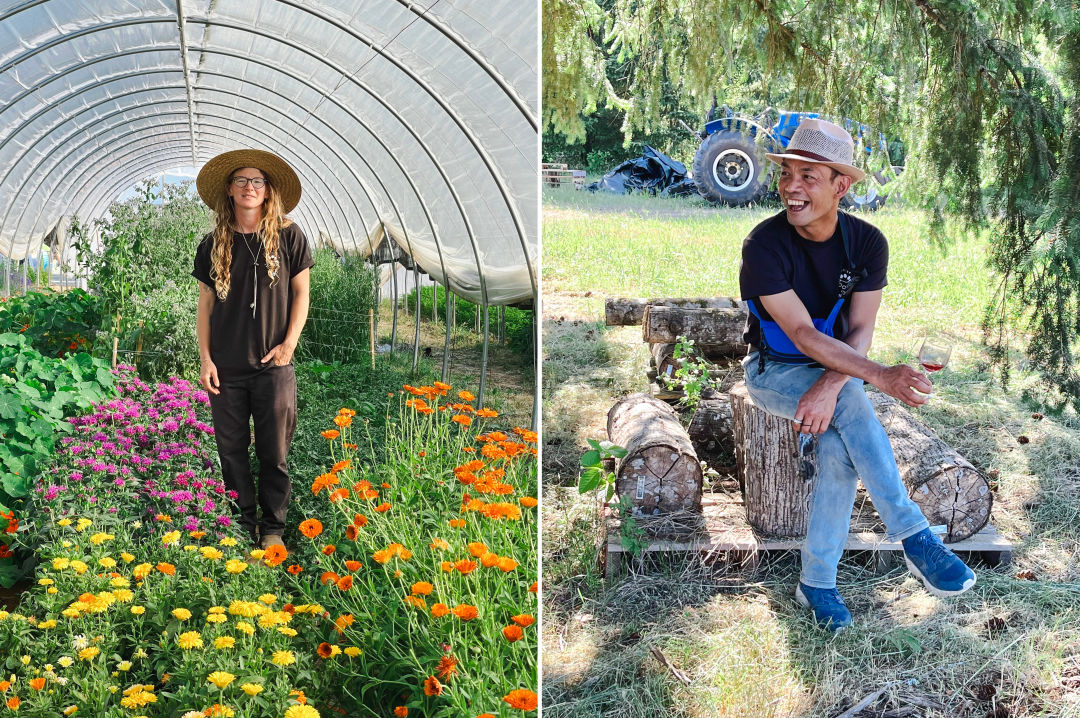
Okta farmer Saruh Wynes (left); beverage director Ron Acierto taking a break in the field
Image: Karen Brooks
What Okta is doing, what it aspires to do, is so different that it’s difficult to compare it to other Northwest restaurants: it involves the magic and astral projection that emerges when the alchemy of food and wine genius play off each other spectacularly. Wine curator Ron Acierto is Lightner’s kindred spirit, relentlessly knocking down doors for rare godfathers of Oregon pinot noir and chardonnay. What binds the duo is a unique Oregonian triad of willful eccentricity, an urge to collaborate, and the belief that passion can take you anywhere. Acierto also has his eye on the future, determined to snoop out the most dynamic experimenters and diverse new voices. At last, Oregon wine and food are sharing the same stage.
Service seals the deal, led by the unfailingly upbeat professionalism of Christine Langelier, an alum of New York’s acclaimed Eleven Madison Park. In other hands, high-end dining often feel like going into a designer store on Madison Avenue. You’re meant to feel intimated, to feel like you can’t afford to be there. Okta is the opposite, exceedingly warm and gracious. The wine glasses are handblown Zaltos (their elongated necks could hold their own in Swan Lake), but the dress code is come as you are.
In July, the kitchen veered in a new direction: 10-course tasting menus that shift with the seasons, as July’s youthful blossoms morph into August’s sweetness and ignite fall’s hallucinogenic radiance. Every course’s name now hints at a story about the farm’s first season, like “Coyote’s Eyes” or “Survival.”
The vibe is blessedly free of Colin the Chicken tropes. Lightner previously shook up definitions of “local and seasonal” back at Portland’s Castagna; now you might hear how, a year before opening, his utopian vision crashed when the farmer’s shovel found not paradise, but dirt as hospitable as Mordor. That first year only chrysanthemum flowers thrived at the farm.
“We were totally fucked,” confesses Lightner to our table. “We had to adapt and research. Turned out chrysanthemums are a symbol of friendship. I thought, ‘Let’s be friends.’”
Which is how we find ourselves eating “Friendship,” a silky custard infused with the chrysanthemum’s buttery blossoms, parked in a complex liquid concocted in the fermentation lab, fragrant with maple buds. Beaming on top: verdant sweet peas, the color of the nearby hillsides in high definition.
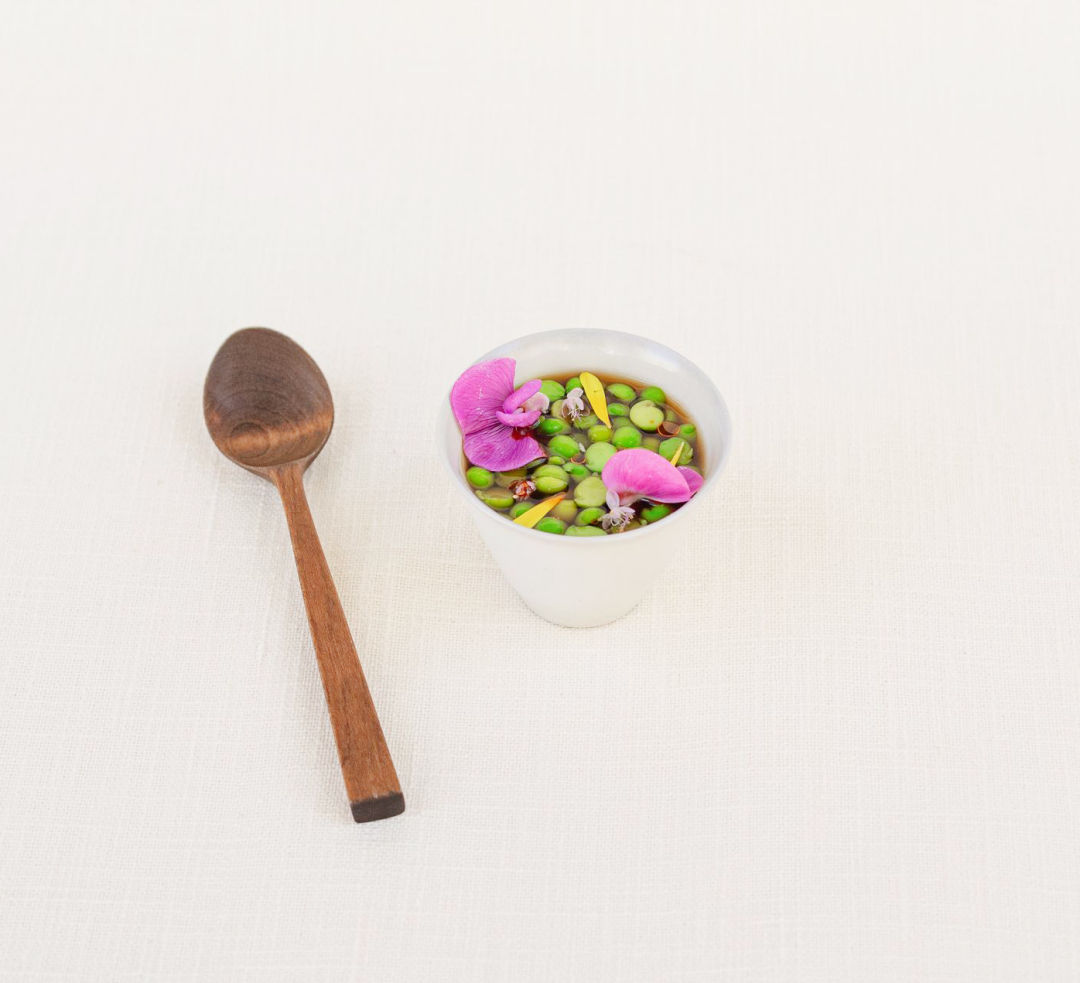
Chrysanthemum blossoms shoot through a complex intensity of custard and peas.
Image: Courtesy Susan Seubert
Not everything lands, but mostly this is a killer meal. I’d return just for the desserts, like “Survival,” an ode to the farm’s heroic old cherry tree, which incorporates a miniature world of cherry formats—cold soup, fruit ice, a drizzle of cherrywood oil—over buckwheat ice cream cookie dough. It’s a cherry pie, hyperspaced.
A dish called “Shifting” shows where this narration can go. Morels, an MVP on Oregon menus, are typically metered out over pasta or seafood. Okta chars a heap of them over hot coals until they nearly liquefy, like ecstatic morel maple syrup. Inspiration for these "burn morels" comes from Okta’s unofficial food influencer, David Harrelson, the cultural resources manager at the Confederated Tribes of Grand Ronde and a onetime wildland firefighter.
The charring pays homage to the Indigenous practice of controlled fires so necessary for forest health. Red alders, Harrelson told the kitchen, are among the first to manifest after a fire. With this in mind, Lightner and chef de cuisine Brendan Byer infused them with Smith Tea’s Northwest alder leaf tea for a woodland surge.
A lot is at play here: ecology, history, modern cooking, and what Lightner calls “a mythical, spiritual religious connection.” The burn morels eventually land in an edible black-and-white landscape, tucked between billowing cream and midnight-dark caviar, the teeny beads softly crunching with sea brine. Ansel Adams could not have shot a more perfect picture.
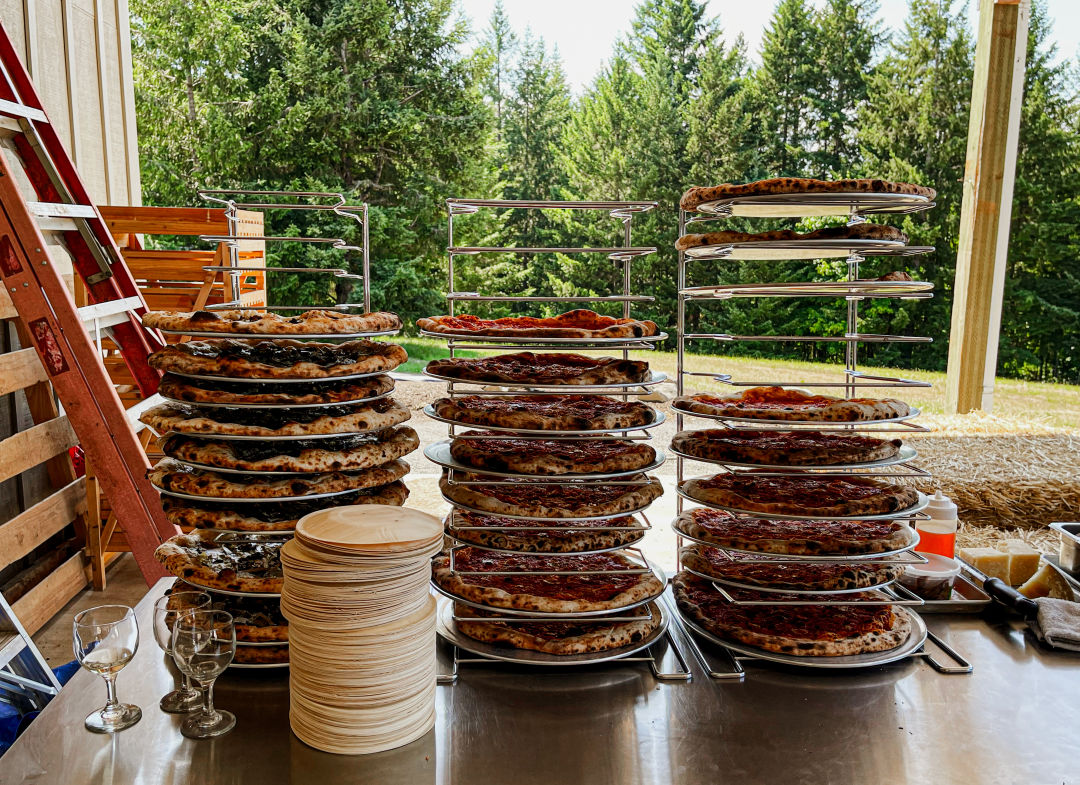
Portland’s Café Olli fired up pizzas on Okta’s outdoor oven at Solstice in the Fields.
Image: Karen Brooks
To Lightner, the theme of reemergence expands beyond just cool food on custom-made plates. He’s keen to fuel a wave of culinary talent and exploration around the valley, while merging the state’s way of thinking with a larger conversation. In late June, Okta brought five world-class chefs to McMinnville to collaborate on a dinner and peek into our backyard. The next day, they wandered around Okta’s farm for Solstice in the Field, a mini food festival, meeting forward-thinking chefs and wine pioneers from Portland, the Columbia Gorge, and McMinnville as they wailed free.
It’s all imagined with the kind of hope, beauty, and connectedness we can use right now. The restaurant’s vision has a price: $285 per person, not counting gratuity or the dynamic wine and cocktails. The cozy, subterranean Cellar Bar offers a smaller version for $195.
But if you go, know this: Okta is an experience not found anywhere, a jubilant expression of fine dining in Oregon, with ideas and ingredients grown here. It’s an investment in a future we can’t yet see.
Okta and the Tributary Hotel
618 NE Third St, McMinnville, OR | Instagram
